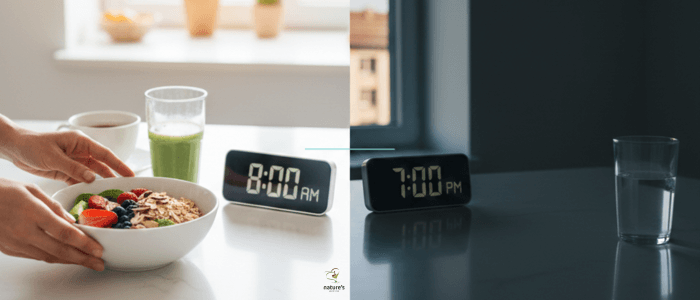Stress Less, Live More: Simple Hacks to De-Stress Your Day
Stress Less, Live More: Simple Hacks to De-Stress Your Day

Introduction
Imagine that feeling. You wake up with a knot in your stomach, your to-do list seems a mile long, and even the thought of checking your email makes you want to crawl back under the covers. Stress – it's a fact of life, but it doesn't have to control your day.
The good news is, with a few simple hacks, you can transform that feeling of being overwhelmed into a sense of calm and control. This blog post equips you with practical strategies to de-stress your day, boosting your well-being and unlocking a happier, healthier you.
Get ready to learn mindfulness techniques that take just minutes, discover the power of movement for stress relief, and explore tips for setting boundaries with technology (because let's face it, sometimes your phone can be the biggest source of stress!).
Why De-Stress? The Body and Mind Under Pressure

We've all experienced that surge of adrenaline when faced with a deadline or a close call in traffic. This is our body's natural "fight-or-flight" response kicking in. It's a survival mechanism that releases hormones like cortisol, preparing us to either confront a threat or flee from danger. In the short term, this response is helpful, giving us a burst of energy and focus.
The Downsides of Chronic Stress:
However, when stress becomes chronic – that constant feeling of being overwhelmed, overloaded, and on edge – it starts to take a toll on our well-being. The prolonged activation of the fight-or-flight response can lead to a variety of negative consequences for both our physical and mental health.
Examples of Health Problems Caused by Chronic Stress:
- Anxiety and Depression: Chronic stress can interrupt the body's natural balance of hormones, increasing the risk of anxiety and depression.
- Weakened Immune System: Stress can suppress the immune system, making us more susceptible to illness.
- Headaches and Muscle Tension: Stress can manifest physically as headaches, muscle tension, and other aches and pains.
- Heart Disease and Stroke: Chronically elevated stress hormones can put a strain on the heart and increase the risk of cardiovascular problems.
By understanding the impact of stress on our bodies and minds, we can see the importance of developing effective stress management strategies.

Identifying Your Stress Triggers
Importance of Self-Awareness:
The first step to effectively managing stress is understanding what triggers it in the first place. Just like fingerprints, everyone's stress triggers are unique. By becoming more self-aware, you can identify your personal stress culprits and develop targeted strategies to combat them.
Common Stress Triggers:
Here are some common stressors that many people face:
- Work: Tight deadlines, demanding workloads, and workplace conflicts can all be major sources of stress.
- Finances: Financial worries about bills, debt, or saving for the future can weigh heavily on our minds.
- Relationships: Disagreements, communication issues, and challenges in our personal relationships can be significant stressors.
- Health Concerns: Whether it's dealing with a chronic illness, caring for a sick loved one, or simply the fear of getting sick, health-related issues can be very stressful.
Become a Stress Detective:
Turn yourself into a stress detective! Here's a simple exercise to help you identify your personal stress triggers:
1. Keep a Stress Journal: For the next week, take note of situations that cause you to feel stressed. This could be anything from a looming deadline to an argument with a friend.
2. Record Your Physical and Emotional Responses: In addition to the situation, jot down how your body and mind react to the stressor. Do you get a headache? Feel tightness in your chest? Experience anxiety or irritability?
3. Analyse Your Findings: After a week, review your stress journal entries. Could you look for patterns and see if there are any common themes that emerge? These patterns will give you valuable insights into your unique stress triggers.
By taking the time to identify your personal stress triggers, you'll be well on your way to developing a personalised stress management plan that works for you.

Simple Hacks to De-Stress Your Day
Now that you've identified your personal stress triggers, let's dive into some practical strategies you can incorporate into your daily routine to combat stress and cultivate calm:
Mindfulness in Minutes:
Feeling overwhelmed? Take a mindful moment! Mindfulness is the practice of focusing your attention on the present moment without judgement. It's a powerful tool for reducing stress and promoting inner peace. Here's a simple breathing exercise you can do anywhere, anytime:
1. Find a Comfortable Position: Sit or stand tall, with your back straight and shoulders relaxed. Close your eyes gently, or soften your gaze if that feels more comfortable.
2. Focus on Your Breath: Take a slow, deep breath in through your nose, feeling your belly rise. Hold for a count of three. Slowly exhale through your mouth, feeling your belly sink.
3. Repeat: Repeat this cycle of deep breathing for a few minutes, focusing on the sensation of your breath entering and leaving your body.
4. Notice Distractions: It's natural for your mind to wander. When this happens, gently bring your attention back to your breath without judgement.
This is just a basic example, and there are many other mindfulness techniques you can explore. Apps like Calm or Headspace offer guided meditations for all levels of experience.
Move Your Body, Boost Your Mood:
Exercise is a fantastic stress reliever! Physical activity releases endorphins, those feel-good chemicals in your brain that elevate your mood and reduce stress hormones. Here are some ways to get your body moving, even on a busy day:
- Take a Brisk Walk: A 20-minute walk in nature is a great way to clear your head and get some fresh air.
- Stretch It Out: Feeling tense? Do some simple yoga stretches at your desk or take a short yoga break during your lunch hour.
- Dance It Out: Put on your favourite music and have a mini dance party! Even a few minutes of movement can make a big difference.
Find an activity you enjoy and make it a regular part of your routine.
Tame the Tech Monster:
Our constant connection to technology can be a major source of stress. Here are some tips to help you tame the tech monster:
- Schedule Screen-Free Zones: Dedicate certain times of the day – like before bed or during meals – to disconnect from your devices.
- Silence Notifications: Constant notifications can be disruptive and distracting. Set your phone to silent mode or turn off notifications for non-essential apps.
- Avoid Checking Work Emails After Hours: Set boundaries between your work life and personal life. Resist the urge to check work emails outside of your working hours.
- Utilise Website Blockers: Feeling overwhelmed by social media or news websites? Consider using website blockers or apps that can help you stay focused and avoid distractions during work time.
By taking control of your technology use, you can significantly reduce stress and create more space for relaxation.

The Power of "No":
Sometimes, the simplest way to de-stress is to simply say "no." We all have limited time and energy, and learning to politely decline extra commitments when you're feeling overwhelmed is crucial for stress management. Here are some tips for saying "no" effectively:
- Be Honest and Direct: A simple "I'm feeling swamped at the moment, but I'd be happy to help in the future" is perfectly acceptable.
- Offer an Alternative: If you can't commit to something entirely, suggest a smaller contribution or a different time frame.
- Set Boundaries with Colleagues: Don't be afraid to politely explain that you need to leave work at a certain time to maintain a healthy work-life balance.
Remember, you don't have to justify your reasons for saying no. Protecting your time and energy is essential for managing stress and avoiding burnout.
Connect and Recharge:
Social connection is a powerful antidote to stress. Here's why:
- Strong relationships provide support and a sense of belonging.
- Sharing laughter and positive experiences with loved ones can boost your mood.
- Engaging in activities you enjoy can be a great way to de-stress.
Here are some ways to nurture your social connections and recharge your batteries:
- Spend Quality Time with Loved Ones: Make time for friends and family, whether it's a phone call, a virtual hangout, or an in-person visit.
- Pursue Hobbies and Interests: Engaging in activities you enjoy is a great way to relax and de-stress. Make time for things that bring you joy and fulfilment.
- Get Outside and Connect with Nature: Spending time in nature has been shown to reduce stress and improve overall well-being. Go for a walk in the park, hike in the woods, or simply sit outside and soak up the sunshine.
By prioritising your social connections and making time for activities you enjoy, you can create a stronger support system and build resilience against stress.
Bonus Tip: Laughter is the Best Medicine!
Laughter truly is the best medicine! When you're feeling stressed, take a moment to lighten the mood with a dose of laughter. Here are some ideas:
- Watch a Funny Video: There's no shortage of hilarious content online. Find a funny cat video, watch stand-up comedy clips, or revisit your favourite sitcom episode.
- Share Jokes with a Friend: Laughter is even more powerful when shared! Crack some jokes with a friend, tell a funny story, or simply reminisce about a time that made you both laugh.
- Read a Comic Strip or Cartoon: A good comic strip or cartoon can provide a quick and easy escape from stress.
Laughter is a natural stress reliever. It can boost your mood, relax your muscles, and even improve your immune system. So, don't be afraid to embrace a little silliness and find ways to incorporate laughter into your day.
FAQ Section
Q: I'm too busy to add extra things to my routine. How can I manage stress in short bursts?
A: Even small pockets of time can be effective for stress management. Try incorporating mindfulness techniques like deep breathing exercises (explained in the post) for a quick moment of calm.
Short bursts of physical activity, like a brisk walk or a few yoga stretches, can also be very effective.
Q: I have trouble sleeping because of stress. What can I do?
A: Chronic stress can disrupt your sleep patterns. Here are some tips for promoting better sleep hygiene:
- Establish a Regular Sleep Schedule: Go to bed and wake up at the same time each day, even on weekends.
- Create a Relaxing Bedtime Routine: Take a warm bath, read a book, or listen to calming music before bed.
- Avoid Screens Before Bed: The blue light emitted from electronic devices can interfere with sleep.
Avoid using screens for at least an hour before bedtime.
If stress continues to disrupt your sleep, consult a doctor.
Q: I've tried some of these tips, but I'm still feeling overwhelmed. What else can I do?
A: If you're struggling to manage stress on your own, there are additional resources available. Consider:
- Talking to a Therapist or Counsellor: A therapist can provide personalised guidance and support for developing effective stress management strategies.
- Joining a Support Group: Connecting with others who are experiencing similar challenges can be helpful and motivating.
- Exploring Relaxation Techniques: Techniques like yoga, meditation, and progressive muscle relaxation can be powerful tools for stress reduction.
Conclusion
Managing stress is an essential part of maintaining overall well-being. By understanding your stress triggers and incorporating simple, effective strategies into your daily routine, you can transform feelings of overwhelm into a sense of calm and control.
Mindfulness, physical activity, and setting boundaries with technology are just a few ways to start. Remember the importance of saying "no" when necessary, connecting with loved ones, and finding joy and laughter in your day-to-day life.
Stress is a natural part of life, but it doesn't have to dominate your existence. By taking proactive steps to manage stress, you can enhance your mental, emotional, and physical health, leading to a happier, healthier you. Embrace these practices, experiment with what works best for you, and make stress management a priority. Your well-being is worth it.
Ready to take control of your stress and boost your well-being?
Start implementing these simple strategies today and experience the transformative power of a stress-free life. Come to our website for more tips and resources on holistic health and wellness. Don't wait—take the first step towards a calmer, healthier you now!
Join our community for ongoing support and inspiration. Subscribe to our newsletter, follow us on social media, and stay connected for the latest updates on holistic approaches to health.
Let's embark on this journey together, and remember, every small step counts towards a stress-free and fulfilling life. Your path to well-being begins today!











